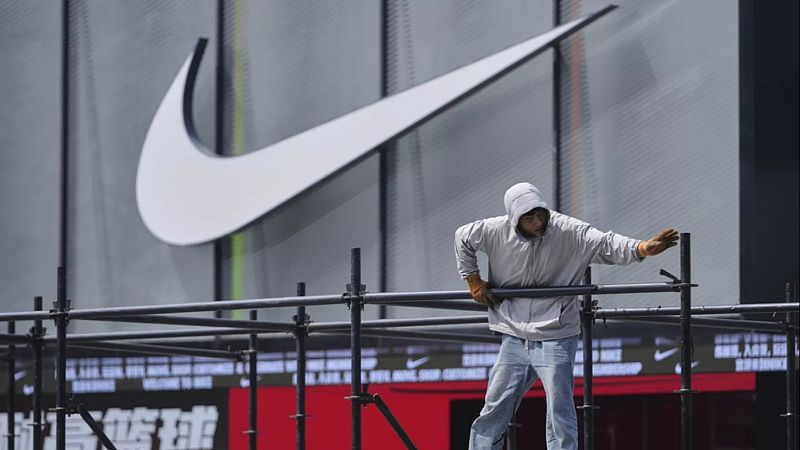
US sportswear company Nike closed a very poor fiscal year at the end of May 2025, as the industry continues to operate under geopolitical volatility and tariff uncertainty.
Its full-year revenues were down 10% at $46.3 billion (€39.51bn), and its net income came in at $3.2bn (€2.7bn), down by 44% compared to the previous fiscal year ending in May 2024.
The last quarter showed no better results; revenues were down 12% to $11.1bn (€9.5bn), and net income collapsed 86% year-on-year to $211 million (€180 million).
“Nike continues to slump, with its fourth quarter the worst in at least two decades,” Mamta Valechha, consumer discretionary analyst at Quilter Cheviot, said. “Sales were down 12%, while its operating margin was a meagre 2.9%. The sales themselves had actually come in ahead of really low expectations, producing an earnings beat.”
“The results we’re reporting today in Q4 and in FY25 are not up to the Nike standard,” Chief Executive Officer Elliott Hill said when announcing the latest results, adding that the company is working hard to reposition itself.
The strategy includes lowering production in China, as US imports from the Asian country are currently facing 55% tariffs, according to the two countries' framework agreement, announced earlier in June.
“Currently, China represents roughly 16% of the footwear we import into the United States, and we expect this to reduce to the high-single digit range by the end of Fiscal 26, with supply from China reallocated to other countries around the world,” the CEO said.
China's Ministry of Commerce on Friday said that the US and China had signed a trade agreement, although details had not yet been announced at the time of writing.
Nike said on Thursday evening that it expected tariffs to come with an estimated $1bn (€850 million) extra cost in the current fiscal year.
Concerning its performance, the group expects both sales and margins to keep declining in the current quarter, but at a slower pace.
“We expect Q1 revenues to be down mid-single digits,” Hill said. “We expect Q1 gross margins to be down approximately 350 to 425 basis points. This includes approximately 100 basis points negative impact, due to the new tariffs, based on the rates that are in place today.”
Quilter Cheviot’s Valechha added: “The share price rallied strongly in after-market trading as investors are beginning to expect a positive rate of change going forward…It has been a difficult period for Nike following the pandemic, and the threat of tariffs is simply not helping the situation for the company.
“Having a cleaner inventory and lower discounting will help, but ultimately Nike needs to produce new products that people want to buy, bringing about increased demand to help bring sales back to the company,“ the analyst added.
Nike shares were up by nearly 10% in after-hours trade in the US, following the announcements.







